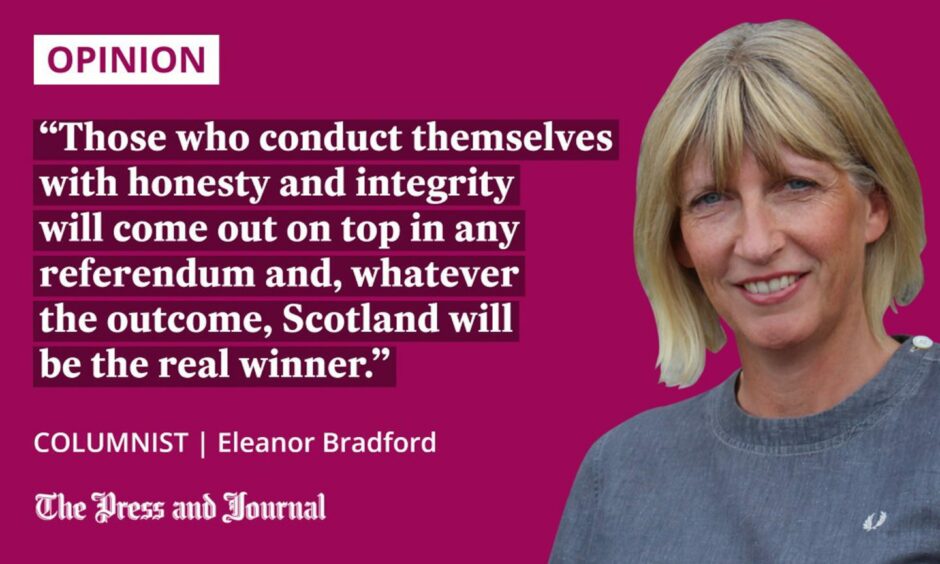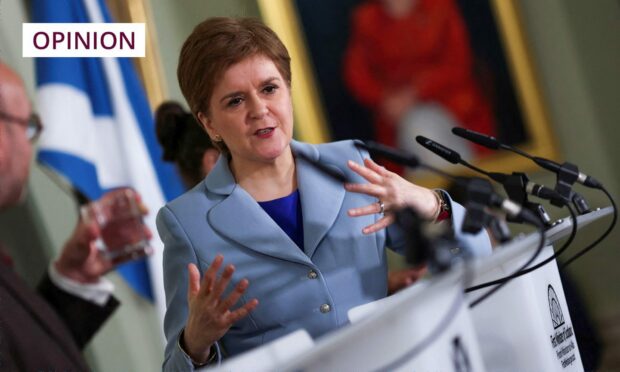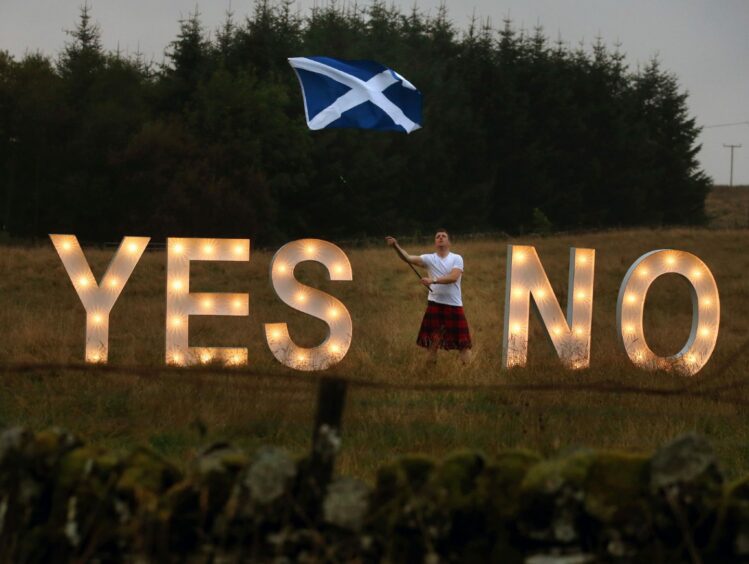The starting gun has been fired on another Scottish independence referendum.
Regardless of whether or not you believe the referendum is legitimate, the heated debate will begin.
The country was and still is split down the middle. For many of us, memories of the last independence referendum are unpleasant; we are not looking forward to that conflict all over again. Yet this is democracy at work – we are being consulted on our future. Why should we dread it?
Let’s face it, the last independence referendum wasn’t a triumph for healthy debate.
Independence supporters wore their badges with pride whilst Better Together supporters did not; a sure sign that they feared the repercussions if they displayed their views publicly. Those fears were well-founded, judging by the hate mail received by one of my neighbours who put up a Better Together sign.
First, I should lay my cards on the table. I am a referendum ‘saboteur’. Apparently, according to some reports, I attempted to swing the referendum in my former role as a BBC Scotland correspondent. I reported a story just two days before the referendum about a £400m funding gap in the NHS.

If anyone concerned about the timing of this story had bothered to ask me, I would have been happy to explain that this story came from an NHS whistleblower and that I initially refused to run it because there wasn’t enough evidence to support their claims. It took them a while to get the genuine internal NHS papers that I needed, which finally arrived at reception in a brown paper envelope three days before the vote. I reported the content of these envelopes the next day, as did the well-respected Herald (now Times) journalist Helen Puttick, who received the same papers. To have buried this story until after the referendum would have shown bias. We both did what journalists always do, report the news as it happens.
Flattered people thought I had the power to swing the referendum result
I’m very flattered that anyone would think I had the power to affect the outcome of the referendum because the idea is rather ludicrous to me, and I’m sure Helen would agree.
Then, even more ludicrously, amidst all the post-referendum accusations, I found myself explaining (not for the first time) that some of the ‘biased’ BBC reports I was accused of making weren’t even mine: they were on STV!
I should point out that the abuse and harassment I faced was not at the hands of the ‘Yes’ or ‘No’ press teams, or the politicians leading them. They were professional and courteous at all times, despite being under huge pressure themselves. The bombardment came from a small but vocal minority of campaigners who demanded a referendum in the name of democracy but then did their best to intimidate and undermine a free press.
However there was a deafening silence from the top when the level and tone of abuse became unacceptable. It’s one thing to accuse parts of the press of bias, quite another to allow your supporters to make them feel physically unsafe and emotionally harmed. We are expected to call out sexism, racism and homophobia even if it is by members of our own sex, race and sexuality. This is no different; some morally repugnant behaviour should not be ignored in order to achieve a desired result.
Healthy debate and integrity needed
And then there was the quality of the debate. We needed hard facts and real issues, but politicians were happy to muddy the waters if that played into people’s fears. Guess what? The ‘wholesale privatisation’ of the English NHS which, according to the ‘Yes’ campaign, threatened Scottish NHS funding, didn’t occur. And Better Together’s claims that inward investment would stop during the referendum campaign never happened either.
This is an opportunity to do things differently.
When the Scottish Parliament was established in 1999 there was such hope that it was going to set an example. There was more diversity in the chamber and new ways of involving the public in law-making. You don’t have to look far to find a businessperson or charity worker who will tell you how much easier it is to speak to politicians in Scotland than England, and that has helped achieve change. Let’s not allow that progress to end every time we need a national debate on a divisive issue.
Good afternoon, we’ve just published a blog which considers the First Minister’s statement on a second independence referendum and the draft Scottish Independence Referendum Bill. You can read it at 👇https://t.co/9t99Etw2KN pic.twitter.com/a6jBpEIxzW
— Scottish Parliament Information Centre (@SPICe_Research) June 29, 2022
These difficult questions are not black and white but full of grey, so let’s respect all opinions and listen to each other. We all have the right to challenge the way the media is reporting events, but we don’t have the right to intimidate and abuse individual journalists (or politicians either). Those who lead campaigns should take responsibility for the behaviour of their supporters and focus on the abundance of meaty topics without descending into deliberately misleading debates.
Research on consumer behaviour, let alone voter behaviour, shows the high value we place on authenticity. Those who conduct themselves with honesty and integrity will come out on top in any referendum and, whatever the outcome, Scotland will be the real winner.
Eleanor Bradford is a former BBC Scotland Health Correspondent and now works in communications in the education sector

















Conversation